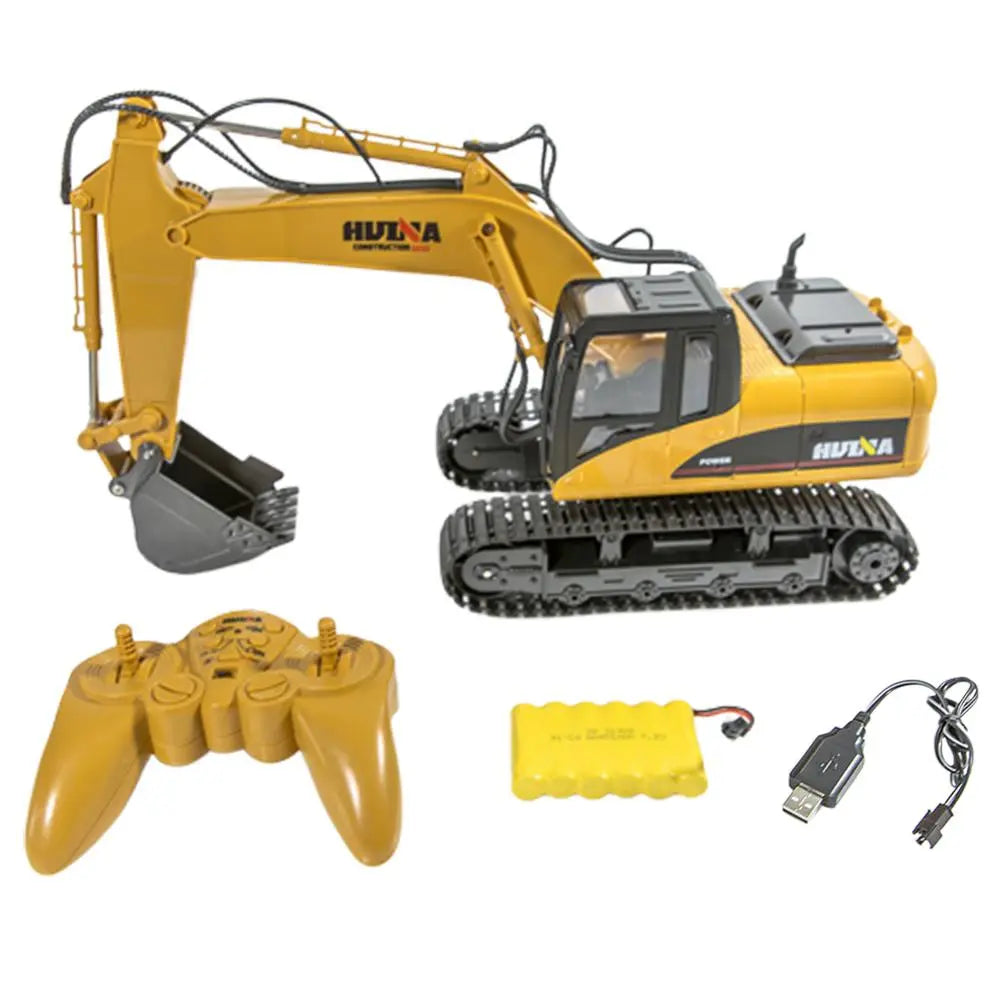Understanding Exactly How Excavator Functions and Its Influence on Performance
Excavators play a necessary function in construction and mining procedures, counting on an intricate interplay of hydraulic and mechanical systems. Their capacity to do a variety of tasks rests on both their design and the modern technology incorporated within. Understanding these elements can substantially impact functional efficiency and efficiency. As improvements proceed to reshape the market, one have to think about just how these adjustments will certainly affect future practices and efficiency.
The Fundamentals of Excavator Mechanics

The Role of Hydraulic Systems in Excavators
At the heart of excavator procedure exists the hydraulic system, which plays an essential duty in powering the machine's movements and features. This system utilizes pressurized hydraulic fluid to move power, making it possible for various activities such as lifting, swinging, and digging. By using the principles of hydraulics, excavators can carry out jobs with impressive accuracy and pressure, boosting general functional efficiency.The hydraulic system contains essential components, including pumps, cylinders, and shutoffs, which collaborate to manage the flow and direction of the fluid. When the operator engages the controls, the hydraulic fluid is routed to specific cylinders, translating the operator's commands right into physical activity. This system enables responsive and smooth actions, which are crucial in building and construction and excavation settings. double e volvo rc excavator. The performance of the hydraulic system directly impacts the performance and convenience of the excavator, making it a vital aspect in modern-day excavation procedures
Secret Elements of an Excavator
Comprehending the vital elements of an excavator is essential for realizing just how this effective equipment runs. An excavator includes numerous considerable aspects, including the undercarriage, residence, arm, bucket, and boom. The undercarriage supplies stability and flexibility, often including tracks or wheels to navigate various surfaces. The home contains the engine and hydraulic systems, permitting the operator to control movement and power the equipment. The boom prolongs from the residence, allowing vertical reach, while the arm links to the container, assisting in digging and training operations.Additionally, the taxicab houses the driver, furnished with controls for specific handling. Each of these components plays a crucial duty in the excavator's overall performance, adding to its performance and effectiveness on building sites. Recognizing these components helps in maximizing and keeping excavator performance, making sure jobs are finished securely and effectively.
Add-on Flexibility and Its Benefits
Add-on versatility is an essential facet of excavators, making it possible for operators to change in between various tools tailored for details jobs. This adaptability not only improves work performance yet also contributes to cost-effectiveness by minimizing the demand for multiple machines. Comprehending the various kinds of add-ons readily available can greatly impact the total efficiency and functionality of an excavator on job sites.
Kinds of Add-ons
While excavators are largely identified for their excavating capacities, their real versatility lies in the large selection of add-ons readily available. These add-ons boost the excavator's capability, allowing it to perform various tasks past excavation. Typical attachments consist of containers (for digging and scooping), hydraulic thumbs (for comprehending materials), and augers (for drilling holes) Grapples are made use of for moving and handling particles, while rippers can separate tough surface areas. Various other specialized add-ons, such as plates and plows, enable excavators to adjust to specific task demands. This diversity not just raises the device's utility across various fields, consisting of demolition, landscaping, and building, but additionally enables operators to customize their devices to fulfill details job demands efficiently.
Raised Task Effectiveness
Making best use of task efficiency is a key advantage of making use of numerous excavator attachments. Various accessories allow an excavator to do multiple jobs without needing to switch over equipment, conserving important time and labor. Utilizing a hydraulic hammer can damage concrete while a container accessory can dig deep into dirt, enabling a smooth operations. This flexibility lowers downtime related to equipment modifications and boosts productivity on-site. Furthermore, specialized add-ons improve precision in tasks such as grading or landscaping, bring about better end results. The ability to adapt to different job needs not only improves procedures yet likewise minimizes the need for extra machinery, making sure that jobs are completed quickly and successfully. Generally, accessory convenience significantly adds to increased job performance in excavation work.
Cost-Effectiveness and Flexibility
Cost-effectiveness is a considerable advantage of utilizing versatile excavator attachments. These attachments allow a single excavator to perform multiple jobs, decreasing the need for extra machinery and labor - double e volvo rc excavator. By switching over in between buckets, hammers, and grapples, operators can tackle various tasks, from excavating to demolition, thus making best use of tools application. This versatility not only decreases functional expenses but additionally lessens downtime connected with altering equipment. Furthermore, the capacity to personalize excavators with specialized accessories improves performance, as they can effectively deal with varied tasks according to project demands. To end, the combination of cost-effectiveness and flexibility in excavator accessories adds to boosted operational performance and resource appropriation in building and excavation tasks

Advanced Modern Technology in Modern Excavators
Modern excavators are significantly furnished with sophisticated technology that changes excavation procedures. Automation improves operations, while boosted fuel efficiency lowers functional costs. In addition, clever control systems improve precision and safety, noting a considerable development in excavation equipment.
Automation in Excavation Processes
As excavation modern technology progresses, automation has become an important element in boosting effectiveness and precision on task websites. Modern excavators are furnished with advanced automated systems that promote tasks such as grading, excavating, and trenching with minimal operator treatment. These systems utilize sensing units, GPS, and artificial intelligence formulas to ensure exact positioning and deepness control, significantly lowering the margin for mistake. In addition, automation permits operators to concentrate on critical decision-making as opposed to hands-on controls, bring about improved performance in general. Such technologies not only enhance operations but likewise boost safety by minimizing human mistake in complicated operations. The combination of automation in excavation procedures represents a substantial advancement in construction innovation, driving the market in the direction of greater effectiveness and efficiency.
Enhanced Fuel Efficiency
Developments in modern technology have actually additionally brought about significant enhancements in fuel effectiveness for contemporary excavators. Modern machines are outfitted with sophisticated engines that enhance power outcome while lowering gas consumption. These engines use cutting-edge burning technologies, such as turbocharging and direct fuel injection, to enhance efficiency and effectiveness. Additionally, light-weight products in building and construction minimize general weight, enabling less energy expense throughout operation. The intro of variable rate controls allows operators to adjust engine efficiency according to certain jobs, additionally minimizing gas usage. Because read this post here of this, these enhancements not just reduced functional costs however also add to environmental sustainability by reducing exhausts. Generally, enhanced gas effectiveness in excavators is a crucial advancement that Read More Here strengthens productivity and financial practicality in the building and construction market.
Smart Control Systems
While drivers navigate increasingly intricate work websites, smart control systems in excavators have actually emerged as essential devices for enhancing performance and accuracy. These sophisticated technologies make use of algorithms and sensing units to monitor different parameters such as tons weight, terrain conditions, and functional efficiency. By immediately readjusting hydraulic features, wise systems maximize device efficiency, resulting in boosted productivity and minimized endure parts. In addition, drivers take advantage of user-friendly user interfaces that offer real-time comments and diagnostics, permitting educated decision-making. This integration of modern technology not only enhances procedures yet also lessens human mistake, contributing to safer workplace. As the building and construction sector continues to develop, wise control systems will certainly play a vital role in shaping the future of excavator performance and performance.
Enhancing Functional Performance With Excavators
Excavators play a vital function in boosting functional effectiveness throughout various building and excavation tasks. Their flexibility permits numerous tasks, including material, training, and excavating handling, which streamlines workflows and minimizes the requirement for additional equipment. With powerful hydraulic systems, excavators can carry out heavy-duty tasks with accuracy, considerably lowering the moment needed to complete projects. The assimilation of advanced technology, such as general practitioner and automated controls, additionally optimizes their operation, enabling operators to attain better accuracy and lower material waste. In addition, modern-day excavators are designed to take in less gas and decrease discharges, adding to both cost financial savings and environmental sustainability. By making use of excavators successfully, building teams can boost efficiency, meet task due dates, and enhance total website monitoring. This multifunctionality and performance make excavators essential devices in the contemporary building landscape.
The Future of Excavators in Construction and Mining Industries
As the building and construction and mining markets evolve, the future of excavators is positioned for significant makeover driven by technological technology and altering functional demands. Breakthroughs in automation and expert system are improving excavator capabilities, allowing for improved accuracy and effectiveness in procedures. Autonomous excavators are arising, minimizing the need for human treatment and reducing the risk of accidents.Moreover, the combination of telematics and IoT technology allows real-time surveillance of device performance and predictive upkeep, maximizing uptime. Green designs, including electric and hybrid versions, are gaining traction, aligning with sustainability objectives within the industry.Additionally, making use of advanced materials and lighter styles boosts fuel effectiveness while keeping performance standards. As these patterns progression, excavators will certainly play an essential duty in meeting the enhancing needs for productivity and safety in building and construction and mining, inevitably changing functional landscapes.
Frequently Asked Concerns
How Do Weather Affect Excavator Performance?

Weather considerably influence excavator performance, as rainfall and mud can prevent traction and security, while extreme temperature levels might affect hydraulic systems. Operators must adapt to these variables to assure excellent performance and security during procedures.
What Safety And Security Procedures Should Operators Comply With While Using Excavators?
Precaution for excavator operators include putting on suitable personal safety equipment, conducting pre-operation assessments, guaranteeing appropriate communication with ground workers, keeping a safe range from overhead dangers, and adhering to well established operational procedures to avoid mishaps.
Just How Typically Should Excavators Be Kept for Ideal Efficiency?
Excavators must be maintained on a regular basis to assure peak efficiency, typically every 250 operating hours or as defined by the manufacturer. Regular checks improve reliability, stop unforeseen malfunctions, and expand the lifespan of the devices.
What Is the Ordinary Life-span of an Excavator?
The typical life expectancy of an excavator usually varies from 10,000 to 15,000 hours of procedure. Aspects influencing durability consist of upkeep techniques, running conditions, and the high quality of the equipment itself, affecting total performance and performance.

Can Excavators Operate on Irregular Terrain Properly?
Excavators can operate efficiently on uneven surface due to their verbalized styles and adjustable tracks. These attributes permit them to preserve security and traction, allowing efficient operation in tough settings commonly come across in construction and landscaping tasks. Each of these parts plays a crucial role in the excavator's total performance, adding to its efficiency and efficiency on building websites. Taking full advantage of work performance is a primary advantage of using numerous excavator attachments. While operators navigate significantly complex YOURURL.com work sites, wise control systems in excavators have actually arised as necessary devices for improving effectiveness and precision. Excavators play an essential role in boosting functional effectiveness across various construction and excavation tasks. Developments in automation and man-made knowledge are improving excavator capacities, permitting for improved precision and efficiency in operations.